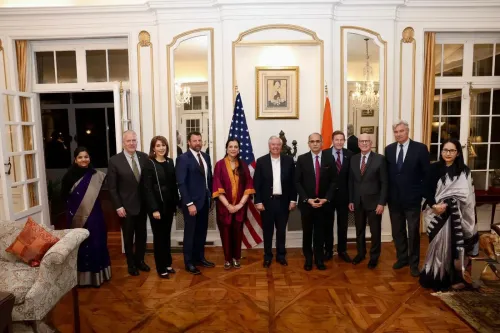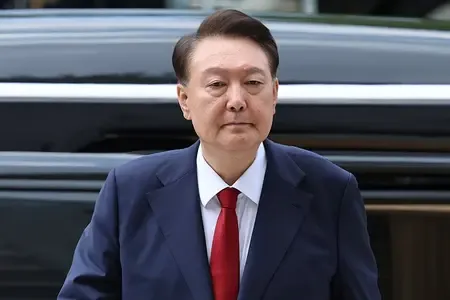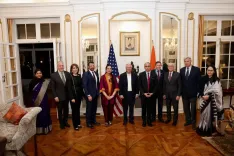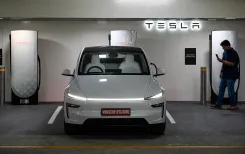Did Marco Rubio Finally Connect with Pakistan's True Power?
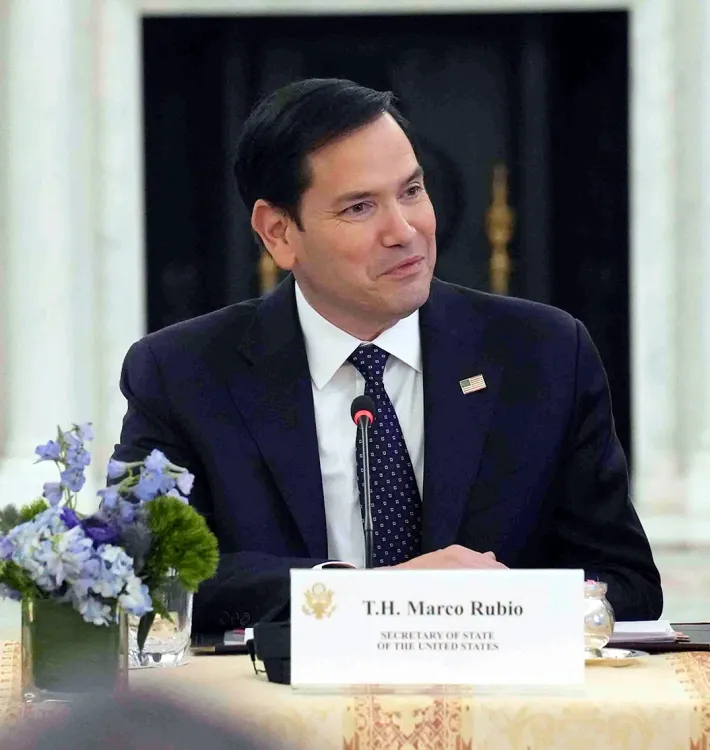
Synopsis
Key Takeaways
- Marco Rubio reached out to Army Chief Asim Munir to discuss de-escalation.
- The US aims to mediate between Pakistan and India.
- Failed talks with Prime Minister Shehbaz Sharif prompted this outreach.
- Both nations are increasing confrontations beyond Kashmir.
- The US expresses a commitment to fighting terrorism in collaboration with India.
New York, May 10 (NationPress) US Secretary of State Marco Rubio has finally made contact with the true epicenter of Pakistan's authority, Army Chief Asim Munir, following unsuccessful discussions with Prime Minister Shehbaz Sharif aimed at easing tensions with India.
According to State Department Spokesperson Tammy Bruce, "Secretary of State Marco Rubio engaged in a conversation with Pakistani Army Chief Asim Munir earlier today."
This call comes amidst rising hostilities between Pakistan and India, with both nations targeting areas beyond Kashmir and deeper into their own territories.
As stated by Donald Trump's spokesperson Karoline Levitt, "The US President wishes to see the confrontation de-escalate as swiftly as possible."
"This is an area where the Secretary of State, along with our National Security Advisor, Marco Rubio, has been heavily engaged," she added.
Bruce mentioned that Rubio extended an offer of "US assistance in initiating constructive discussions to prevent future conflicts."
Furthermore, she noted, "He continued to encourage both sides to seek ways to de-escalate the situation."
Rubio had spoken with Sharif on Thursday, emphasizing the need for immediate de-escalation, according to Bruce's summary of that call.
On the same day, he also reached out to India's External Affairs Minister S. Jaishankar, delivering a similar message while highlighting the US's "commitment to collaborate with India in combating terrorism," as stated by the spokesperson.
After India initiated 'Operation Sindoor', India’s National Security Advisor (NSA) Ajit Doval was the first to contact Rubio internationally.
Rubio has also taken on the role of National Security Advisor following the resignation of Mike Waltz.
India's operation was a response to an attack by a group affiliated with the Pakistan-based Lashkar-e-Taiba, which resulted in the tragic deaths of 26 people during a religiously targeted attack in Pahalgam last month.
Earlier, Bruce outlined the US's priorities regarding the situation, stressing the importance of avoiding escalation and promoting dialogue between the two countries.
"America was clearly at the forefront of discussions with various leaders from both sides over the past couple of days," she stated.
However, mixed signals regarding the US's involvement have surfaced.
Vice President JD Vance remarked that the conflict between the two nations was "fundamentally none of our business," acknowledging Washington's limitations in managing the situation.
In a Fox News interview on Thursday, he stated, "While we can encourage these parties to de-escalate, we will not intervene in a conflict that is fundamentally outside our business and beyond our control."
Prior to India's operation, Trump maintained a hands-off stance, indicating, "I am sure they'll resolve it one way or another." However, he has since advocated for de-escalation between the two countries.
Trump is currently more focused on the conflict in Gaza, where a ceasefire between Israel and Hamas — facilitated by Washington — has collapsed. Next week, he is set to visit Saudi Arabia, Qatar, and the United Arab Emirates, with the Gaza issue expected to dominate discussions.


